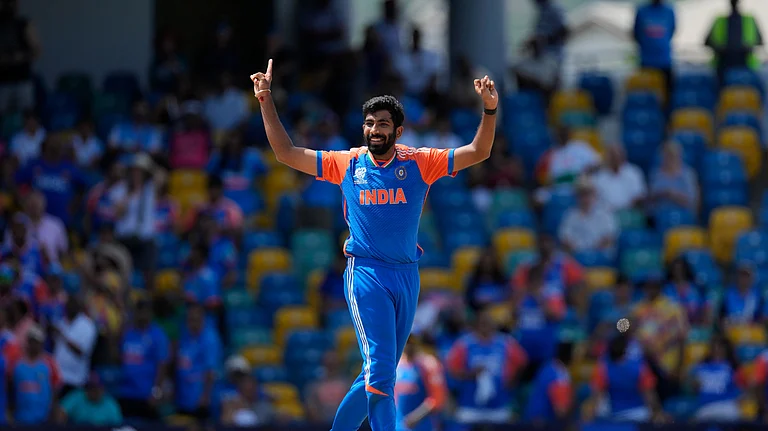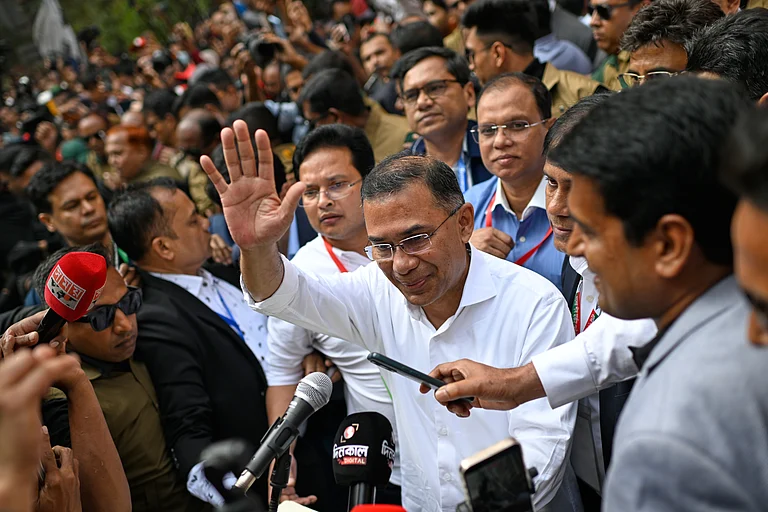The following is a first-person report from the ground in Nagaland’s Mon district where the horrific incident of violence, in which security forces gunned down 14 civilians, took place on Saturday.
"People usually don't go to funerals", these words took me back to 5th of December - the day when I insisted on accompanying my parents and their colleagues to a visit to the injured men who were being brought to Mon Civil hospital. Outside the hospital stood a few ambulances. I saw nurses and some civilians carrying four men who were in critical condition. They were being taken to Dimapur for better treatment; for we live in a remote land with very limited facilities even when it comes to health care.
The two rooms were filled with people - patients, visitors and family members. We offered a prayer for them and left soon after. That very afternoon I was with my mother, interviewing a young boy about his handloom business for another blog when we received a call, "the situation at my colony is really bad and I'm all alone. Can you guys come pick me up?"
It was my cousin who lived near the Assam Rifles Camp. We made several calls but no one was willing to take the risk of going to a place where the angry mob were causing havoc. After many more calls, my mother got into a neighbor’s car to rushe to pick her up. Sounds of gunshots and smoke filled our town that evening. My mother said, "We have already faced this before. Now it's even coming to this land"; Nagas have indeed been facing such atrocities for a very, very long time.
It's the 6th of December. My parents and sisters were in the kitchen having breakfast when I heard our neighbor call out to my father saying that they need to leave for the funeral soon since they are the ones who were going to conduct the funeral (my parents work with the Konyak Baptist Church Association). I quickly got dressed and came out with my camera, "I want to accompany you!" I told my father. They were hesitant. After what had happened the previous day, any human being would be worried and afraid to go out and attend a funeral. I convinced them. I heard my mother say, "if anything like yesterday happens, remember to get on the ground and try to find cover. Don't run".
As I got in the car, I noticed the lady sitting in front of me carrying "crocs" in her car, as she wore heels with our konyak mekhala. "One must always be prepared for whatever situation comes."
Amid the restlessness and fear of it all, I was persistent in wanting to write the truth and not just some fragments of my imagination, about what it must have been like. It felt personal, because even in my family, we have felt the brunt of violence during the time of my grandfather.
A madman standing with the crowd, laughing loudly caught my eye. But as I tried to take a photo of him, a convoy of cars entered the helipad - the CM had arrived. I left my father who sat with his colleagues and went and sat with the crowd; if one wishes to know the reality of a situation, one must go as close to it and experience it. This is what I believe in.
In my honest opinion, the funeral broke my heart - not just because I was grief-stricken after seeing so many coffins carrying 14 lifeless bodies together. But because somewhere between "who is right and who is wrong", we lost the humane side of us - no tears were shed, no songs of mourning were sung.
Do we give up seeking justice simply because of some compensation that's been given to the bereaved families? Absolutely not. But I believe, one must also never lose touch with the truth that we are all humans, at the end of the day. Justice will be served, one day or the other. The truth can't be hidden for too long.
My grandfather was actively involved in the Indo-Naga political issues in the 1950's and was one of the founding members of the present Nagaland state.
I always wondered why he in his last days chose to become a missionary. Maybe somewhere deep down, I now know, there are things in this world that we don't see or understand. But faith can move mountains, and peace can be found even in this hopelessly lost world. We will carry the legacy of our forefathers, continue the fight that they've left behind. Our rights to live freely in our land will be fulfilled someday.
And the madman laughs
There's a madman in this little town, who lives off by asking shopkeepers for his daily bread, and smiles at the sky for no reason.
He wraps a thin blanket around him which hasn't been washed for God knows how long, and walks barefoot on sharp rocks and pebbles that we call "roads".
He stood there today, with the crowd gathered to mourn. He laughed as the crowd went wild, and echoes of anger that were roaring in the wind were suddenly silenced -
The old man spoke in riddles, and innocent men got carried away again (or maybe we knew from the start, our voices get drowned in this world filled with billions of cries).
When you live in a world with no balance, you're either the fortunate one or the one that gets trampled upon. There's no in-between.
Maybe the madman knew; he wasn't the only one with all the delusions, after all.
And even as we cry out tonight, the little voice in me tells me, "you're only crying out to an empty void". A part of my heart aches, thinking of all the battles lost; all the fights against injustice that went unheard and forgotten in these barren lands of north-east India.
Even as I stand in front of these 14 wooden boxes that carry the weight of all our tears, and our ancestors, I'm reminded of all the mothers and sisters who were stripped off, raped and murdered in our own land. Sound of drums ringing in my ears, I hear the cries of my people who've lost their lives in the hands of the armed men claiming to be "protectors of our nation''; our villages razed and pillaged by fire; of children who saw their own fathers get killed in front of their eyes in broad daylight; heartbroken men carrying their brothers’ lifeless bodies back home.
And if this cry for justice stops now, maybe I will laugh along with the madman who wraps a thin blanket around him which hasn't been washed for God knows how long, and who walks barefoot on sharp rocks and pebbles that we call "roads".
(H Kemya Yanlem lives in Mon town which is located in the North-Eastern corner of Nagaland bordering Myanmar. She graduated from KL Bajoria College, Shillong and is currently pursuing her Masters in English from IGNOU.)


























